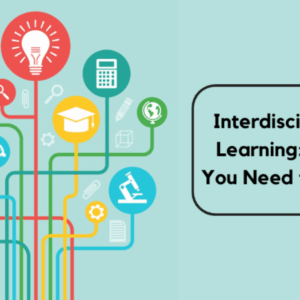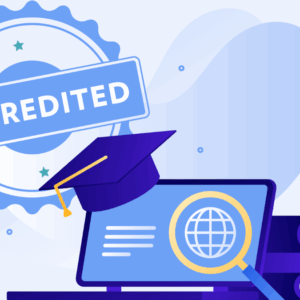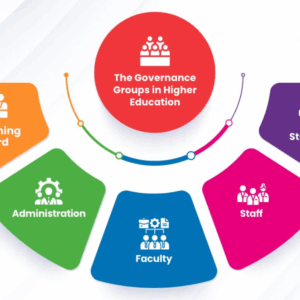Introduction
The journey through higher education is no longer limited to acquiring academic knowledge alone. In today’s competitive, fast-changing job market, students expect universities to help bridge the gap between classroom theory and professional practice. Career services have evolved into essential institutional pillars, guiding students from their first year on campus to their first job in the workforce—and beyond. These services play a vital role in preparing graduates not just for jobs, but for lifelong career success.
The Purpose of Career Services in Modern Universities
Career services are designed to equip students with the tools, resources, and guidance they need to transition successfully into professional environments. These offices support students through a combination of personal development, job search strategy, skill building, and employer engagement. Their mission is not simply to place students in jobs, but to foster employability, adaptability, and confidence.
Key Functions of University Career Services
1. Career Counseling and Planning
Career advisors help students explore career paths based on their skills, interests, values, and academic backgrounds. One-on-one guidance sessions, personality assessments, and career planning workshops assist students in making informed decisions about their professional futures.
2. Resume and Cover Letter Development
Effective communication is key when applying for jobs. Career services provide templates, reviews, and personalized feedback for students to create strong, concise, and targeted resumes and cover letters that reflect both academic and extracurricular experiences.
3. Internship and Co-op Opportunities
Practical experience is highly valued by employers. Universities often partner with organizations to offer internships, co-op placements, and part-time opportunities. These real-world experiences allow students to apply academic knowledge in professional settings, gain insights into industry practices, and build networks.
4. Job Search Support
Students are taught how to navigate the job market using online platforms, job portals, alumni networks, and career fairs. Career centers may host mock interviews, networking events, and company visits, all aimed at familiarizing students with the recruitment process.
5. Soft Skills Development
Career readiness goes beyond technical skills. Career services offer training in soft skills like communication, teamwork, leadership, critical thinking, emotional intelligence, and time management—qualities that employers consistently value in candidates.
6. Graduate School Preparation
For students considering advanced studies, career centers also provide support in identifying suitable programs, preparing applications, and crafting statements of purpose, recommendation requests, and portfolios.
Campus-Industry Collaborations
Modern universities frequently collaborate with industries to keep curriculum relevant and ensure students are workforce-ready. Through employer panels, guest lectures, industry projects, and mentoring programs, students gain insights into real-world challenges and trends. Career services play a critical role in managing these relationships and aligning academic efforts with market needs.
Alumni Engagement and Networking
Alumni networks serve as valuable career resources. Career centers often organize alumni talks, mentorship programs, and networking sessions to connect current students with successful graduates. These connections provide not only career inspiration but also valuable job leads and industry insights.
Technology and Digital Career Tools
Technology has transformed how career services operate. Many universities use digital platforms to offer virtual counseling, career assessments, and webinars. Online job portals, AI-powered resume reviews, and digital interview simulations have made career support more accessible and responsive to student needs.
Preparing for a Changing Workforce
The modern workforce demands adaptability. Automation, remote work, gig employment, and global competition have changed the employment landscape. Career services are responding by preparing students for multiple career transitions, portfolio careers, and entrepreneurial ventures. They help students identify transferable skills, embrace continuous learning, and develop resilience in the face of change.
Challenges in Career Services
While career services are increasingly vital, they also face challenges:
- Resource Limitations: Not all institutions can provide comprehensive, personalized support due to staff shortages or budget constraints.
- Student Engagement: Some students wait until graduation to seek help, missing opportunities for long-term career planning.
- Rapid Market Changes: Keeping up with evolving job markets and industry expectations requires constant adaptation.
Universities must address these challenges through strategic investment, employer engagement, and a culture that encourages early and proactive career planning.
The Lifelong Impact of Career Services
Career services don’t just influence the first job students land—they shape career trajectories. A strong foundation in self-awareness, skill articulation, and professional confidence helps students thrive throughout their working lives. Institutions that invest in career services ultimately build stronger alumni networks, better employment outcomes, and enhanced reputations.
Conclusion
The transition from campus to career is one of the most significant shifts in a student’s life. Universities that prioritize comprehensive, dynamic, and student-centered career services empower graduates to navigate this journey with clarity and confidence. In an increasingly complex job market, career services are no longer a luxury—they are a necessity for institutional excellence and student success. By guiding students from academic exploration to career execution, these services play a transformative role in unlocking human potential and preparing future leaders.
FAQs
1. What is the role of university career services?
Career services help students explore career options, prepare for job applications, gain work experience, develop employability skills, and transition into the workforce.
2. When should students start using career services?
Ideally, students should engage with career services from their first year to build long-term career strategies and gain early access to resources.
3. What types of services do university career centers typically offer?
They offer career counseling, resume reviews, mock interviews, job search assistance, internship placements, skill workshops, and employer networking events.
4. Do career services help with finding jobs after graduation?
Yes, career centers support job placement by providing job boards, organizing career fairs, and connecting students with alumni and employers.
5. Are internships arranged through career services?
In many universities, career centers help students find and apply for internships through partnerships with various organizations.
6. How important are soft skills in the job market?
Soft skills like communication, leadership, and teamwork are highly valued by employers and are often developed through workshops and programs run by career centers.
7. Can career services help with graduate school applications?
Yes, they often provide guidance on selecting programs, writing personal statements, and preparing for entrance exams.
8. Are these services available to alumni as well?
Many universities extend limited career support to alumni, including job boards, networking events, and occasional counseling.
9. How can students make the most of career services?
By engaging early, attending workshops, participating in events, and seeking regular feedback on their career goals and materials.
10. Do all universities offer the same level of career support?
No, the quality and range of services can vary depending on the institution’s size, resources, and focus. Students should actively explore what’s available to them.






